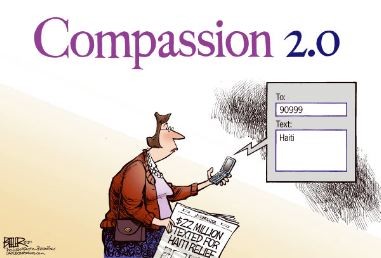Century Marks

Conversion story: Johnny Lee Clary, former Ku Klux Klan imperial wizard, was recently ordained in the Church of God in Christ, the largest black denomination in the country. Clary had a conversion experience 20 years ago and left the Klan, but it took him a while to overcome his racist attitudes. A year ago he felt God was calling him to a ministry of reconciliation, which led to his request for ordination in COGIC. “The Klan’s brand of Christianity is God’s children are nothing but white people,” he said. “I absolutely detest that.” Not all COGIC members were initially happy that a former Klansman was being ordained in the church (RNS).
Foreclosing foreclosure: A number of faith-based organizations throughout the country have mobilized to stem the tide of home foreclosures. The Massachusetts Communities Action Network, an interfaith coalition, has appealed for homeowner assistance to officials from the Treasury Department, the Federal Reserve and Congressman Barney Frank (D., Mass.), chair of the House Financial Services Committee. Frank agreed to push the Treasury to use profits from the bank bailout program to help unemployed home owners make their mortgage payments. The Brockton Interfaith Community organization discovered that many people are too embarrassed to tell their pastors about their financial difficulties, so they are educating clergy about the crisis and how to work for lending reform (Boston Globe, January 11).
Local bankers: Move Your Money is an online grassroots movement encouraging people to take their money out of banks that are “too big to fail.” It is appealing to people who are angry at big banks for predatory lending practices, for receiving government bailout money and for giving huge bonuses to their employees. The Web site offers information on community banks and credit unions in your area. Although some community banks have also failed—without having the benefit of government bailouts—they typically are more conservative in the way they use their money and are often more connected to local businesses and needs (Move Your Money).
Dubious export: The U.S. is exporting not only fast food and American movies to the rest of the world, according to Ethan Watters. It is also exporting Western notions about mental illness—how it is expressed, diagnosed and treated. For example, until the 1990s, anorexia nervosa was rare in Hong Kong, and it manifested itself not in dieting or in fears of becoming fat, but in complaints about having a bloated stomach. The 1994 death of a teenage girl prompted media to focus on the Western symptoms—and led to an upsurge of Western-style cases of anorexia (Crazy Like Us, excerpted in the New York Times, January 10).
Bored housewives: Bonnie Ford, a history professor retired from Sacra mento City College, remembers getting a rejection letter from a doctoral program at the University of California at Davis that mentioned her status as a wife and mother who had just had a baby girl the year before. The letter added that “Ph.D.s are not for bored housewives.” She persisted, eventually was accepted and received a doctorate from UC Davis the year before her daughter graduated from high school. She established a women’s studies program and women’s center at Sacra mento (Inside Higher Ed, January 12).
Better than the Taliban? “What if Afghani citizens were to determine whether the U.S. military continues a surge or withdraws troops?” ask Cliff Kindy and Neil Wollman. “Certainly this is a fitting step in encouraging democracy.” A referendum scheduled for January was scrapped in Iraq when it became apparent that the outcome would reduce the American presence by only several months, but nothing similar is planned in Afghanistan. However, a December poll of Afghani adults by Western news agencies indicated that nearly seven in ten support U.S. forces in their country, and 61 percent favor the surge. Support for the coalition forces seems motivated by a fear of the Taliban coming to power again (Common Dreams, January 7, and AP).
All or nothing: While the U.S. honors conscientious objectors opposed to all wars, it does not allow conscientious objection to particular wars. This poses a potential crisis of conscience for those who espouse the just war theory, which includes the majority of Christians. If you are in the military and oppose a particular war, such as the one in Iraq or Afghanistan, it is illegal for you to refuse deployment. Refusing deployment leads to sanctions, possible court martial and even imprisonment. A Truth Commission on Conscience in War is scheduled for Riverside Church in New York on March 21, which hopes to generate a national conversation about current CO regulations (Religion Dispatches).
Artists wanted: Singer Bono has an idea that could contribute to the Middle East peace process—an arts festival celebrating the origin of the three Abrahamic religions. It could be held in a different location each year, with Jerusalem being the obvious starting place. “In Ireland, at the height of the ‘Troubles,’ it was said that the only solution for rabid sectarianism was to let 1,000 punk-rock bands bloom: music helped create a free space for dialogue. . . . So no politicians allowed. Artists only” (New York Times, January 3).
Savor it: As Sy Safransky lay in bed one morning, his wife asked him what he was going to do that day. “Save the world,” he responded in a deadpan voice. “Did you say ‘save’ or ‘savor’?” she asked. After he laughed, she said, “Try ‘savor’” (The Sun, January).





